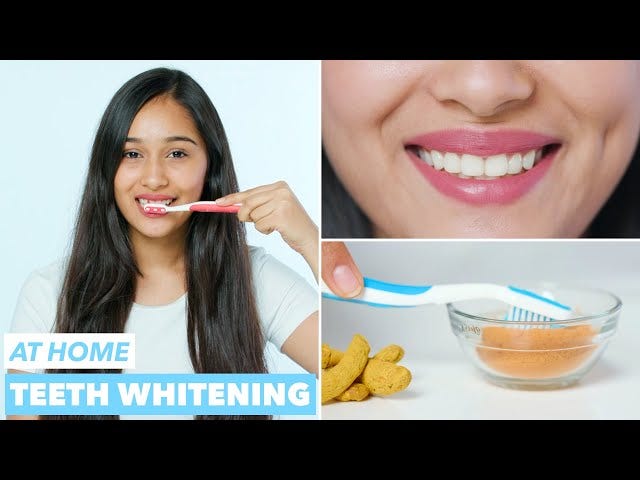
A dazzling smile can leave a lasting impression, and having pearly white teeth is often associated with good oral hygiene and overall health. While there are numerous commercial teeth whitening products available, many people are turning to natural remedies for a safer and more affordable way to brighten their smiles. In this article, we’ll explore some of the most effective natural teeth whiteners that you can easily incorporate into your daily routine.
1. Baking Soda and Hydrogen Peroxide:
One of the most well-known natural teeth whitening remedies is the combination of baking soda and hydrogen peroxide. Baking soda acts as a gentle abrasive, helping to remove surface stains, while hydrogen peroxide has natural bleaching properties. To use this method, create a paste by mixing a small amount of baking soda with hydrogen peroxide and brush your teeth with it a few times a week. Be cautious not to use this method too frequently, as overuse can lead to tooth sensitivity.
2. Oil Pulling:
Oil pulling is an ancient Ayurvedic practice that involves swishing oil, typically coconut oil, in your mouth for 15–20 minutes daily. This process is believed to draw out toxins and bacteria from your mouth, which can contribute to teeth staining. Over time, regular oil pulling can help whiten your teeth and improve overall oral health.
3. Strawberries and Baking Soda:
Strawberries contain malic acid, a natural teeth whitening agent, and combining them with baking soda creates an effective homemade whitening paste. Mash up a ripe strawberry and mix it with a pinch of baking soda. Apply the mixture to your teeth and leave it on for 5–7 minutes before rinsing. This method should be used sparingly, as strawberries are also acidic and can potentially harm your tooth enamel with excessive use.
4. Apple Cider Vinegar:
Apple cider vinegar has gained popularity as a natural remedy for various health issues, including teeth whitening. It has natural antibacterial properties and can help remove stains from your teeth. To use it, dilute apple cider vinegar with water and use it as a mouthwash. Be sure to rinse your mouth thoroughly afterward to prevent any potential erosion of tooth enamel.
5. Activated Charcoal:
Activated charcoal has become a trendy natural teeth whitener due to its ability to absorb stains and toxins. You can find activated charcoal toothpaste or powder at many health stores. Use it sparingly, as it can be abrasive and may lead to tooth sensitivity if overused.
6. Eating Crunchy Fruits and Vegetables:
Foods like apples, carrots, and celery are natural abrasives that can help clean your teeth and remove surface stains as you chew. Additionally, their high water content stimulates saliva production, which aids in maintaining a healthy pH balance in your mouth.
Conclusion:
While natural teeth whiteners can be effective, it’s essential to use them in moderation and consult with your dentist if you have any concerns about their impact on your oral health. Keep in mind that these remedies may take time to show results, and consistency is key. Combine these natural methods with good oral hygiene practices such as regular brushing, flossing, and dental check-ups for a brighter, healthier smile.
